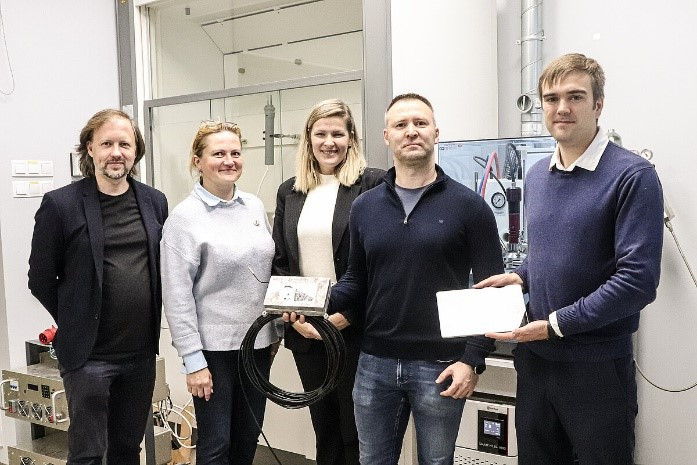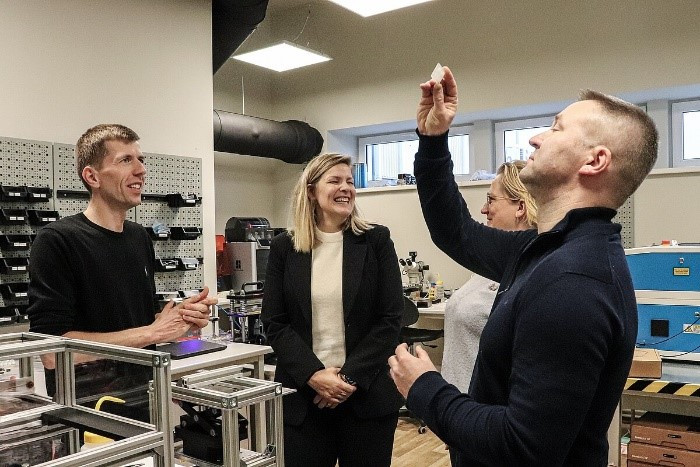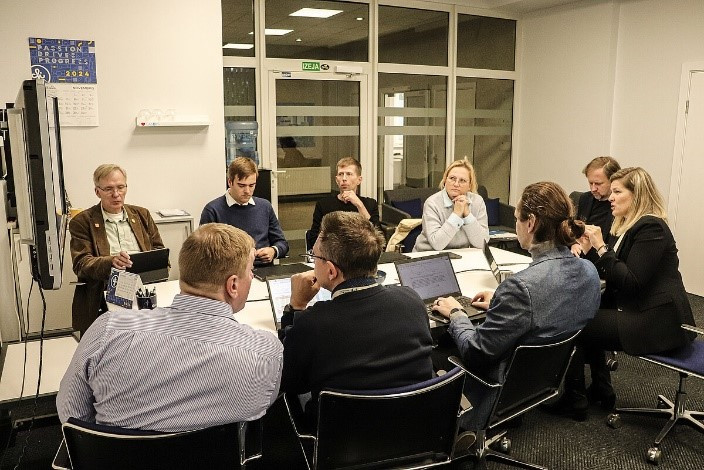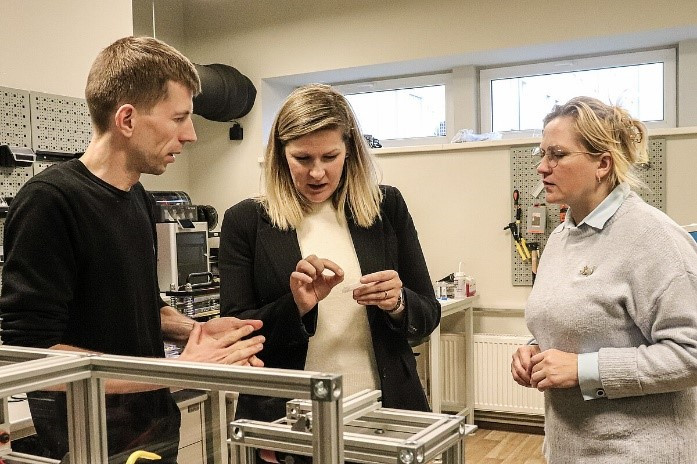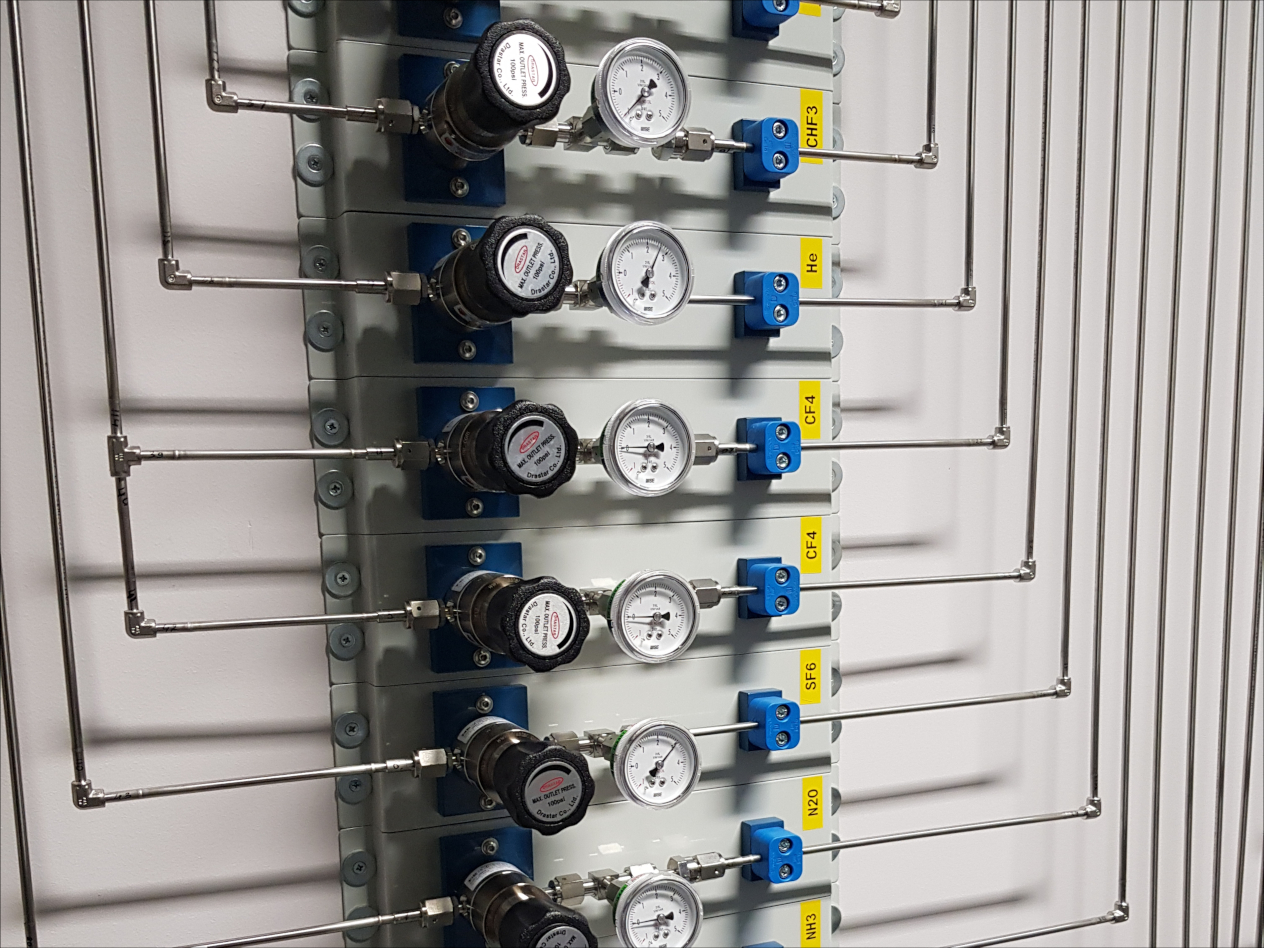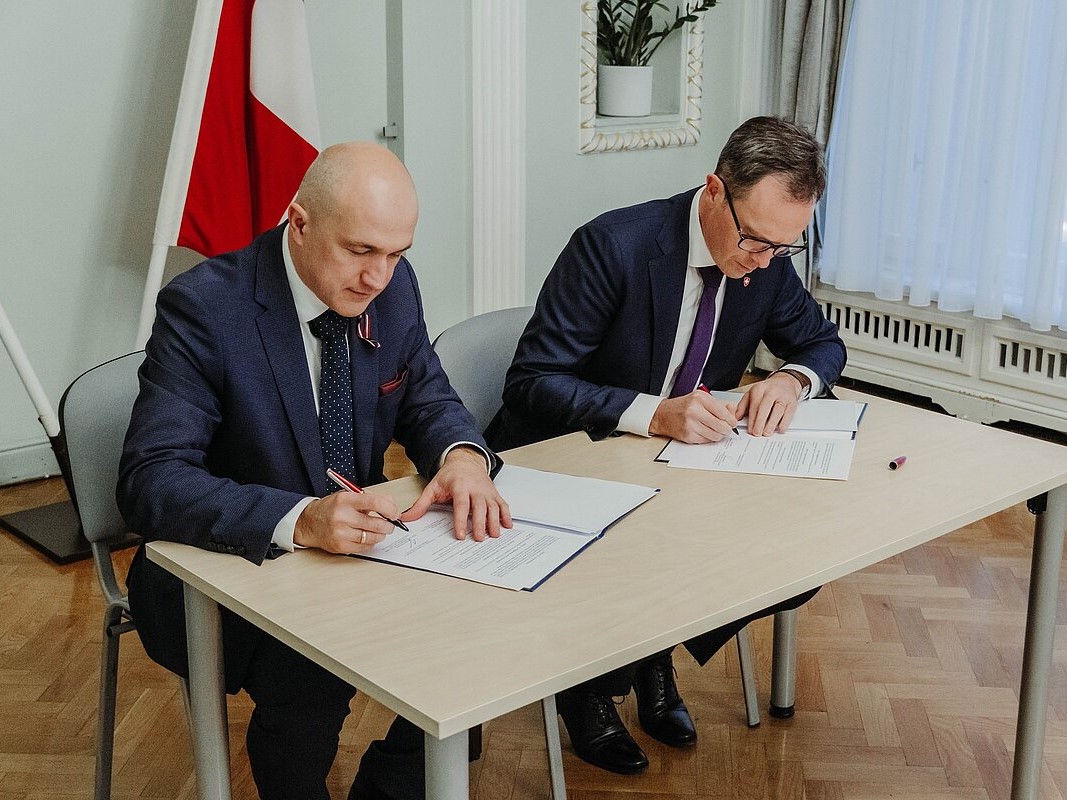On November 1, the ISSP UL hosted Alise Pīka-Ozola, Head of the Latvian Investment and Development Agency (LIAA) Innovation and Technology Representative Office in Geneva, Switzerland, along with Svetlana Lampiga, Leading Expert of the LIAA’s Innovation Management Department and RIS3 specialization area "Photonics and Smart Materials, Technologies, and Engineering Systems." Alise Pīka-Ozola also represents the Latvian industry at the European Organization for Nuclear Research (CERN).
At the ISSP UL, the guests were welcomed by the institute’s director, Dr. phys. Andris Anspoks; Ph.D. Aleksejs Zolotaryovs, head of the Laboratory of Optical Materials; Dr.sc.ing. Gatis Mozoļevskis, head of the Micro and Nanodevices Laboratory; Dr. phys. Aivars Vembris, head of the Laboratory of Organic Materials; Dr. phys. Anatolijs Popovs, leading researcher of the Laboratory of Kinetics in Self-Organizing Systems; Dr.sc.ing. Jānis Latvels, head of the Development Department; and representatives from the Materize platform, Ainārs Knoks and Ainārs Ozols.
In her presentation, Alise Pīka-Ozola outlined the responsibilities of an industry representative at CERN, which include advancing Latvia’s progress towards full CERN membership and enhancing the research and development capabilities of Latvian companies through industry procurement and technology transfer projects.
Latvia’s participation in CERN presents excellent opportunities for developing high-quality research activities and promoting economic growth. Engagement with CERN offers Latvian companies access to procurement procedures, CERN infrastructure, open innovation, and an impetus for research and development activities. The primary objectives of the CERN Latvia working group are to introduce ongoing initiatives, foster new collaborations, and raise awareness about CERN.
Jānis Latvels introduced the ISSP UL as an internationally recognized leader in materials science and interdisciplinary research within the Baltic Sea region, outlining the institute’s vision, mission, and research directions. The ISSP UL collaborates with over 100 scientific institutions worldwide, developing an average of 50 scientific projects annually, with approximately one-third of these in partnership with companies. To promote cooperation between ISSP UL scientists and both Latvian and international companies in high technology and materials science, the institute has established an industry collaboration platform called Materize. The ISSP UL actively engages with the public, particularly young people and students, participating annually in events such as "Job Shadow Days," Career Days, the European Researchers’ Night, the Solar Cup competition for school youth, and various hackathons.
At the end of the visit, LIAA representatives toured the ISSP UL laboratories to gain insights into the institute’s scientific activities and the work of start-ups in polymer photonics, innovative hydrogen technology, and optical gas sensors. The visit highlighted several areas for future collaboration between LIAA, CERN, and the ISSP UL.

